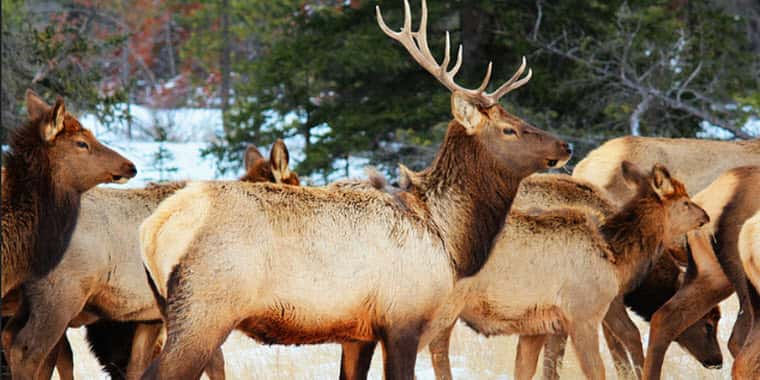The United States Department of Agriculture’s (USDA) Animal and Plant Health Inspection Service (APHIS) is issuing a draft policy statement through the Federal Select Agent Program (FSAP) on research with Brucella species in outdoor settings. The policy statement will allow researchers to conduct brucellosis studies in large animals that cannot be easily housed or studied indoors. The ability to conduct outdoor host animal studies involving swine, elk, bison, and cattle will help APHIS gain important tools and information to continue with brucellosis eradication.
‘At the request of Senator Daines of Montana, animal health experts, and livestock industry stakeholders, we have worked closely with the Centers for Disease Control and Prevention, the Department of Homeland Security, and other leaders in the Greater Yellowstone area to ensure we can safely conduct the kinds of outdoor research studies we need in order to advance our ability to control and eradicate brucellosis, ‘ said USDA Under Secretary for Marketing and Regulatory Programs Greg Ibach. ‘I’m happy to share this draft policy today, as it will help us continue eradication efforts in key wildlife areas.’
Ibach was joined by Senator Steve Daines and Congressman Greg Gianforte when he made the announcement at a ranch outside of Belgrade, MT.
USDA’s Cooperative State Federal Brucellosis Eradication Program made huge progress in eliminating this disease from most of the country. Production losses due to brucellosis dropped from more than $400 million in 1952 to less than $1 million today. But continued advances are still needed – endemic Brucella abortus is expanding its range in the Greater Yellowstone Area and Brucella suis is being found in more feral swine populations throughout various areas of the United States. This expansion emphasizes a critical need for both improved diagnostics and vaccine development related to wildlife. Traditional studies will not work for wildlife species, but this draft policy statement provides an outline for how to safely conduct outdoor studies. The information gathered from these types of studies will help both wildlife managers and livestock producers across the country, while still addressing the need to handle Brucella according to select agent requirements.
‘This development is an important step in the right direction,’ said Dr. Marty Zaluski, Montana State Veterinarian. ‘We need to continue efforts to ease regulatory restrictions that are preventing critical research to solve the problem of brucellosis in the Greater Yellowstone Area.’
United States Cattlemen’s Association commented on the announcement saying their group and other animal health leaders have been calling for the allowance to study vaccine responses to Brucellosis in cattle, swine, elk and bison. USCA commends USDA APHIS for taking the first steps to eradicate the virus in domestic animals and wildlife.
Select Agents, including Brucella, are subject to regulations on storage, use and movement in order to protect the American public and agriculture. Today’s draft policy outlines the information researchers must provide to FSAP in order for their study to be approved. APHIS’ Agriculture Select Agent Services team will provide support to researchers by reviewing their research plans for compliance with the FSAP regulations.
The draft policy statement is available on the FSAP website. The draft policy statement will also be published in the Federal Register to seek public comments. Due to the length of the review process, facilities wishing to pursue these types of studies can begin the planning process using this draft policy; however, changes to the policy may occur based on the Federal Register process.
###
USDA APHIS
Office of Montana Senator Steve Daines
U.S. Cattlemen’s Association


